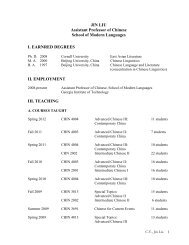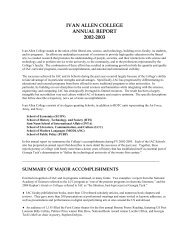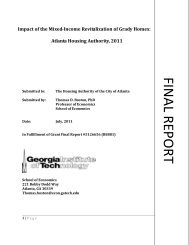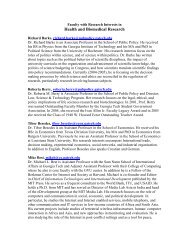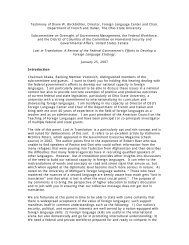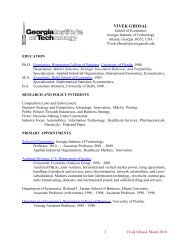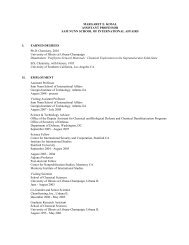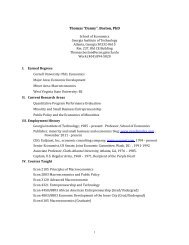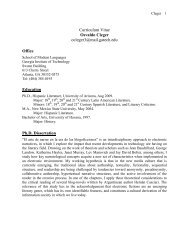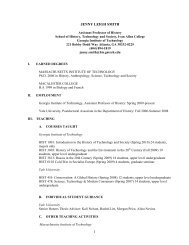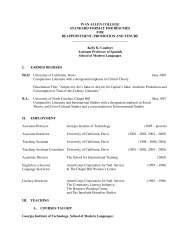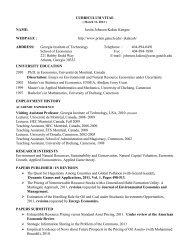Read this paper
Read this paper
Read this paper
Create successful ePaper yourself
Turn your PDF publications into a flip-book with our unique Google optimized e-Paper software.
native Taiyuan Mandarin even though she plays an entertainment demistar,<br />
Qiao Qiao, who is a native of Datong (fig. 9). Yet the use of local<br />
language takes a new twist in <strong>this</strong> film, which distinguishes the language<br />
of the female and male protagonists. The two male leads, Wu Qiong<br />
(playing Xiao Ji) and Zhao Weiwei (playing Bin Bin), speak Putonghua rather<br />
than dialect throughout the film (fig. 10). The difference in the male and<br />
female protagonists’ language depicts a stratification among disaffected<br />
and disillusioned Chinese youth, a feature many critics have yet to discuss.<br />
Although broadcast-standard Putonghua Mandarin continues to be used<br />
in <strong>this</strong> film as the mainstream media language largely for its ideological<br />
connotation, the film seems to ironically confirm its elevated position in<br />
the hierarchy of linguistic practices. One of Bourdieu’s main theses (1991)<br />
is that the educational system as an institution plays a decisive role in the<br />
standardization, legitimization, and imposition of an official language; the<br />
dialectical relation between the education system and the labor market<br />
conspires to devalue local dialects, which are often dismissed as uneducated<br />
and coarse. The Putonghua spoken by the high school–educated Xiao<br />
Ji and Bin Bin in <strong>this</strong> movie is therefore endowed with certain cultural<br />
Figure 9: Qiao Qiao (played by Zhao Tao) in Unknown Pleasures (2002)<br />
Modern Chinese Literature and Culture • 183<br />
MCLC 18.2.indd 183<br />
12/20/06 2:01:38 PM



